HSBC 2006 Annual Report Download - page 31
Download and view the complete annual report
Please find page 31 of the 2006 HSBC annual report below. You can navigate through the pages in the report by either clicking on the pages listed below, or by using the keyword search tool below to find specific information within the annual report.-
 1
1 -
 2
2 -
 3
3 -
 4
4 -
 5
5 -
 6
6 -
 7
7 -
 8
8 -
 9
9 -
 10
10 -
 11
11 -
 12
12 -
 13
13 -
 14
14 -
 15
15 -
 16
16 -
 17
17 -
 18
18 -
 19
19 -
 20
20 -
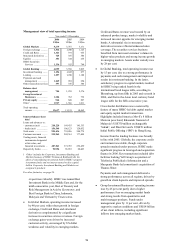 21
21 -
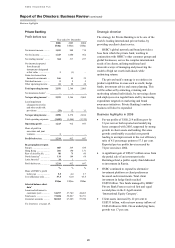 22
22 -
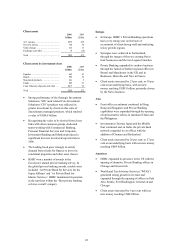 23
23 -
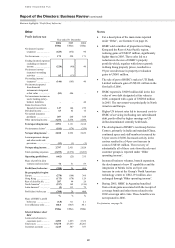 24
24 -
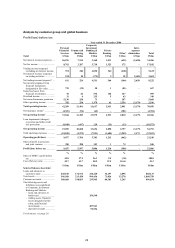 25
25 -
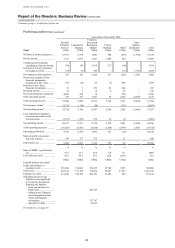 26
26 -
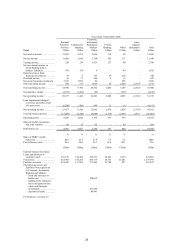 27
27 -
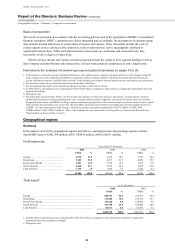 28
28 -
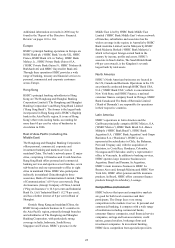 29
29 -
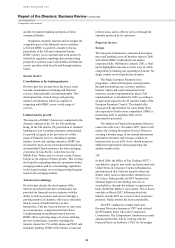 30
30 -
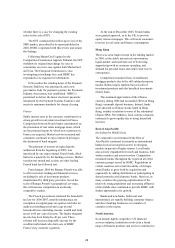 31
31 -
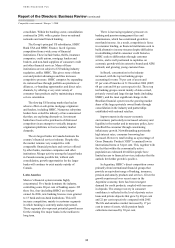 32
32 -
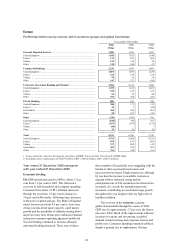 33
33 -
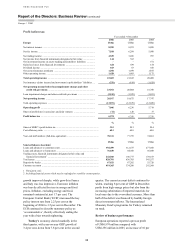 34
34 -
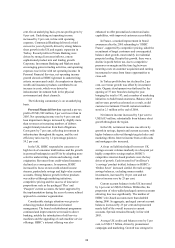 35
35 -
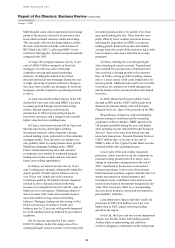 36
36 -
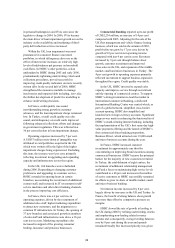 37
37 -
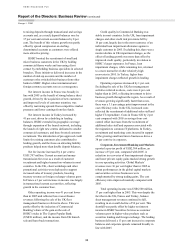 38
38 -
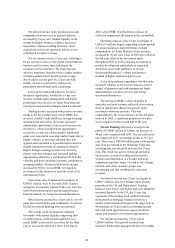 39
39 -
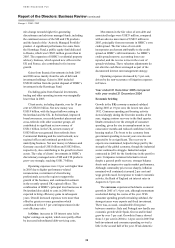 40
40 -
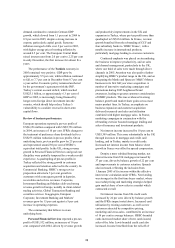 41
41 -
 42
42 -
 43
43 -
 44
44 -
 45
45 -
 46
46 -
 47
47 -
 48
48 -
 49
49 -
 50
50 -
 51
51 -
 52
52 -
 53
53 -
 54
54 -
 55
55 -
 56
56 -
 57
57 -
 58
58 -
 59
59 -
 60
60 -
 61
61 -
 62
62 -
 63
63 -
 64
64 -
 65
65 -
 66
66 -
 67
67 -
 68
68 -
 69
69 -
 70
70 -
 71
71 -
 72
72 -
 73
73 -
 74
74 -
 75
75 -
 76
76 -
 77
77 -
 78
78 -
 79
79 -
 80
80 -
 81
81 -
 82
82 -
 83
83 -
 84
84 -
 85
85 -
 86
86 -
 87
87 -
 88
88 -
 89
89 -
 90
90 -
 91
91 -
 92
92 -
 93
93 -
 94
94 -
 95
95 -
 96
96 -
 97
97 -
 98
98 -
 99
99 -
 100
100 -
 101
101 -
 102
102 -
 103
103 -
 104
104 -
 105
105 -
 106
106 -
 107
107 -
 108
108 -
 109
109 -
 110
110 -
 111
111 -
 112
112 -
 113
113 -
 114
114 -
 115
115 -
 116
116 -
 117
117 -
 118
118 -
 119
119 -
 120
120 -
 121
121 -
 122
122 -
 123
123 -
 124
124 -
 125
125 -
 126
126 -
 127
127 -
 128
128 -
 129
129 -
 130
130 -
 131
131 -
 132
132 -
 133
133 -
 134
134 -
 135
135 -
 136
136 -
 137
137 -
 138
138 -
 139
139 -
 140
140 -
 141
141 -
 142
142 -
 143
143 -
 144
144 -
 145
145 -
 146
146 -
 147
147 -
 148
148 -
 149
149 -
 150
150 -
 151
151 -
 152
152 -
 153
153 -
 154
154 -
 155
155 -
 156
156 -
 157
157 -
 158
158 -
 159
159 -
 160
160 -
 161
161 -
 162
162 -
 163
163 -
 164
164 -
 165
165 -
 166
166 -
 167
167 -
 168
168 -
 169
169 -
 170
170 -
 171
171 -
 172
172 -
 173
173 -
 174
174 -
 175
175 -
 176
176 -
 177
177 -
 178
178 -
 179
179 -
 180
180 -
 181
181 -
 182
182 -
 183
183 -
 184
184 -
 185
185 -
 186
186 -
 187
187 -
 188
188 -
 189
189 -
 190
190 -
 191
191 -
 192
192 -
 193
193 -
 194
194 -
 195
195 -
 196
196 -
 197
197 -
 198
198 -
 199
199 -
 200
200 -
 201
201 -
 202
202 -
 203
203 -
 204
204 -
 205
205 -
 206
206 -
 207
207 -
 208
208 -
 209
209 -
 210
210 -
 211
211 -
 212
212 -
 213
213 -
 214
214 -
 215
215 -
 216
216 -
 217
217 -
 218
218 -
 219
219 -
 220
220 -
 221
221 -
 222
222 -
 223
223 -
 224
224 -
 225
225 -
 226
226 -
 227
227 -
 228
228 -
 229
229 -
 230
230 -
 231
231 -
 232
232 -
 233
233 -
 234
234 -
 235
235 -
 236
236 -
 237
237 -
 238
238 -
 239
239 -
 240
240 -
 241
241 -
 242
242 -
 243
243 -
 244
244 -
 245
245 -
 246
246 -
 247
247 -
 248
248 -
 249
249 -
 250
250 -
 251
251 -
 252
252 -
 253
253 -
 254
254 -
 255
255 -
 256
256 -
 257
257 -
 258
258 -
 259
259 -
 260
260 -
 261
261 -
 262
262 -
 263
263 -
 264
264 -
 265
265 -
 266
266 -
 267
267 -
 268
268 -
 269
269 -
 270
270 -
 271
271 -
 272
272 -
 273
273 -
 274
274 -
 275
275 -
 276
276 -
 277
277 -
 278
278 -
 279
279 -
 280
280 -
 281
281 -
 282
282 -
 283
283 -
 284
284 -
 285
285 -
 286
286 -
 287
287 -
 288
288 -
 289
289 -
 290
290 -
 291
291 -
 292
292 -
 293
293 -
 294
294 -
 295
295 -
 296
296 -
 297
297 -
 298
298 -
 299
299 -
 300
300 -
 301
301 -
 302
302 -
 303
303 -
 304
304 -
 305
305 -
 306
306 -
 307
307 -
 308
308 -
 309
309 -
 310
310 -
 311
311 -
 312
312 -
 313
313 -
 314
314 -
 315
315 -
 316
316 -
 317
317 -
 318
318 -
 319
319 -
 320
320 -
 321
321 -
 322
322 -
 323
323 -
 324
324 -
 325
325 -
 326
326 -
 327
327 -
 328
328 -
 329
329 -
 330
330 -
 331
331 -
 332
332 -
 333
333 -
 334
334 -
 335
335 -
 336
336 -
 337
337 -
 338
338 -
 339
339 -
 340
340 -
 341
341 -
 342
342 -
 343
343 -
 344
344 -
 345
345 -
 346
346 -
 347
347 -
 348
348 -
 349
349 -
 350
350 -
 351
351 -
 352
352 -
 353
353 -
 354
354 -
 355
355 -
 356
356 -
 357
357 -
 358
358 -
 359
359 -
 360
360 -
 361
361 -
 362
362 -
 363
363 -
 364
364 -
 365
365 -
 366
366 -
 367
367 -
 368
368 -
 369
369 -
 370
370 -
 371
371 -
 372
372 -
 373
373 -
 374
374 -
 375
375 -
 376
376 -
 377
377 -
 378
378 -
 379
379 -
 380
380 -
 381
381 -
 382
382 -
 383
383 -
 384
384 -
 385
385 -
 386
386 -
 387
387 -
 388
388 -
 389
389 -
 390
390 -
 391
391 -
 392
392 -
 393
393 -
 394
394 -
 395
395 -
 396
396 -
 397
397 -
 398
398 -
 399
399 -
 400
400 -
 401
401 -
 402
402 -
 403
403 -
 404
404 -
 405
405 -
 406
406 -
 407
407 -
 408
408 -
 409
409 -
 410
410 -
 411
411 -
 412
412 -
 413
413 -
 414
414 -
 415
415 -
 416
416 -
 417
417 -
 418
418 -
 419
419 -
 420
420 -
 421
421 -
 422
422 -
 423
423 -
 424
424 -
 425
425 -
 426
426 -
 427
427 -
 428
428 -
 429
429 -
 430
430 -
 431
431 -
 432
432 -
 433
433 -
 434
434 -
 435
435 -
 436
436 -
 437
437 -
 438
438 -
 439
439 -
 440
440 -
 441
441 -
 442
442 -
 443
443 -
 444
444 -
 445
445 -
 446
446 -
 447
447 -
 448
448 -
 449
449 -
 450
450 -
 451
451 -
 452
452 -
 453
453 -
 454
454 -
 455
455 -
 456
456 -
 457
457 -
 458
458
 |
 |
29
whether there is a case for changing the existing
rules for the sale of PPI.
The OFT conducted the follow-up review of the
SME market, prescribed by its report published in
2002. HSBC cooperated with this review and awaits
the findings.
Following MasterCard’s appeal to the
Competition Commission Appeals Tribunal, the OFT
withdrew its original interchange fee case to
concentrate on a new case against both MasterCard
and Visa. The European Commission is also
investigating interchange fees, and HSBC has
responded to its requests for information.
In November the winding down of the Payment
Systems Taskforce was announced, and a new
governance body for payment systems, the Payments
Industry Association, was established. HSBC is
positioned to deliver the faster electronic payments
introduced by the Payment Systems Taskforce and
meets its minimum standards for cheque clearing.
France
Stable interest rates in the eurozone contributed to a
strong growth in real estate investment in France.
Competition between French banks concentrated on
the promotion of real estate mortgage loans, which
are the principal means by which new customers in
France are acquired. Market activity increased and
consumers continued to enjoy improved pricing to
the detriment of bank margins.
The payment of interest on sight deposits,
authorised from the beginning of 2005, was
introduced by one major mutual French bank, albeit
linked to a quarterly fee for banking services. Market
reaction was muted and, to date, no other leading
French bank has followed suit.
From January 2006 the Banque Postale was able
to offer real estate lending and financial services,
including the sale of investment products
manufactured by third party providers. Given the
scale of Banque Postale’s geographical coverage,
this will increase competition in an already
competitive market.
The French government reformed the household
tax law for 2006/2007, notably introducing a tax
exemption on capital gains on equities sold after an
eight-year holding period and a cap on total
household taxes (including income, wealth and local
taxes) at 60 per cent of income. The higher marginal
tax rate has been limited to 40 per cent. These
reforms will increase disposable income for the
wealthier individuals who form one of HSBC
France’s key customer segments.
At the end of December 2005, French banks
were granted approval, as in the UK, to provide
equity release mortgages. This will assist customers
to invest in real estate and finance consumption.
Hong Kong
There was some improvement in the lending market
in 2006, as the stable interest rate environment,
liquid market, and moderate cost of borrowing
supported growth in consumer spending, and
demand for personal loans and credit cards rose in
consequence.
Competition remained fierce in traditional
mortgage products due to the still subdued property
market. Robust equity markets buoyed sales of
investment products and also benefited investment-
related loans.
The sustained appreciation of the Chinese
currency during 2006 had no marked effect on Hong
Kong’s renminbi deposit business. Instead, funds
were attracted to Chinese stocks listed in Hong
Kong, notably in relation to some of the substantial
Chinese IPOs. Nevertheless, local currency deposits
continued to grow rapidly due to rising household
incomes.
Rest of Asia-Pacific
(including the Middle East)
The competitive environment in the Rest of
Asia-Pacific continued to intensify as international
banks focused on targeted sectors in emerging
markets in pursuit of higher returns. Local banks
also actively expanded their reach and business, both
within countries and across borders. Competition
remained intense throughout the region in all of the
customer groups served by HSBC. Regulations in
certain countries act to limit the ability of foreign-
owned banks to grow both by acquisition and
organically by adding distribution or participating in
shared networks with domestic banks. However, in
many countries the growing sophistication of the
relatively young population and increasing affluence
of the middle class continued to provide HSBC with
further opportunities for growth.
Banks and non-banks, both local and
international, are rapidly building consumer finance
and direct banking businesses in a number of
countries in the region.
North America
In an already highly competitive US financial
services industry, institutions involved in a broad
range of financial products and services continued to
